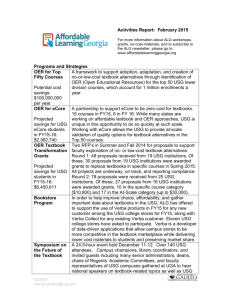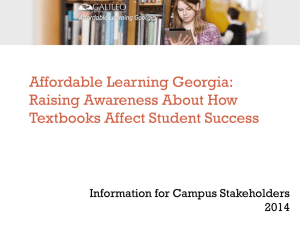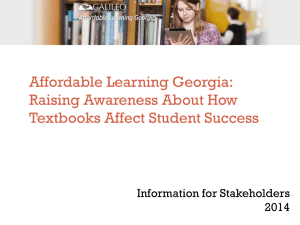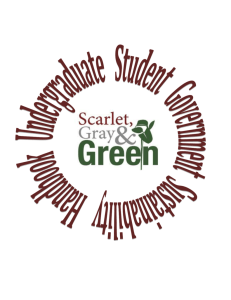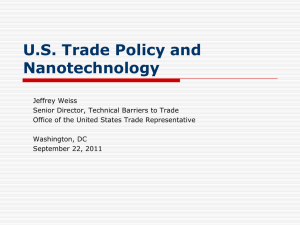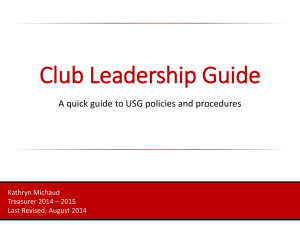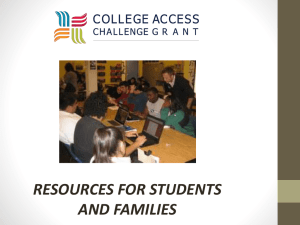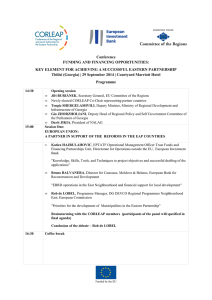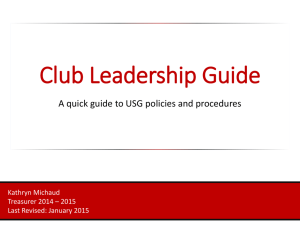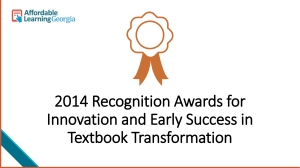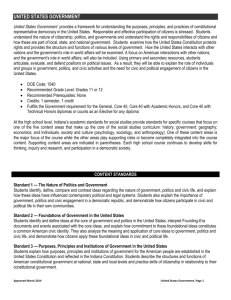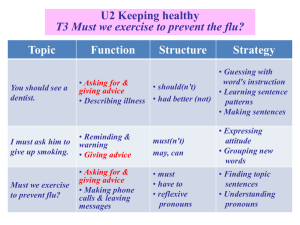Lauren Fancher and Jeff Gallant
advertisement
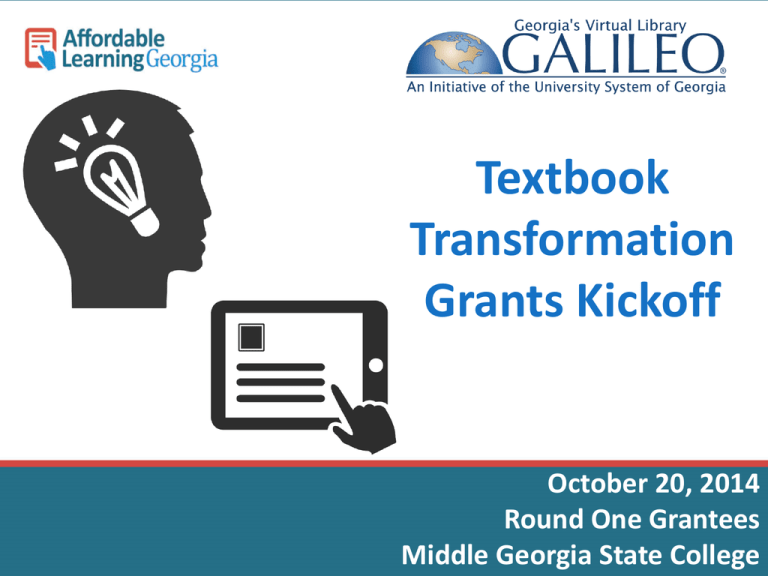
Textbook Transformation Grants Kickoff October 20, 2014 Round One Grantees Middle Georgia State College Textbook Transformation Grants, Round 1 Kickoff Training Event: October 20, 2014, 9-4pm • 9am-10:45am: Opening General Session – – – – Welcome and Introductions Introduction to ALG and Textbook Transformation Grants What is “Open?” Introduction to OpenStax College • 10:50am-11:50am: Grant Category Breakout Sessions • 12:00pm-1:00pm: Lunch and Discussion on grant procedures and compliance • 1:00pm-1:50pm: General Session: Accessibility • 2:00pm-3:00pm: Grant Category Breakout Sessions • 3:00pm-4:00pm: Q&A Forum and Wrap-up Agenda • Lauren Fancher: Director, GALILEO Support Services, Board of Regents, USG – Ongoing point of contact for Service Level Agreements • Jeff Gallant: Visiting Program Officer for OER, GALILEO Support Services, Board of Regents, USG – Ongoing point of contact for implementation assistance and compliance reporting Welcome and Introductions Our guest presenters and instructors: • Nicole Finkbeiner: Associate Director of Institutional Relations, OpenStax College • Marie Lasseter: Director, Academic Technologies, USG Office of Faculty Development • Robert Martinengo: Publisher Outreach Specialist, AMAC Accessibility Solutions • Norah Sinclair: Customer Support Supervisor, AMAC Accessibility Solutions Welcome and Introductions Summary of Grants and Grantees • 19 institutions – – – – • • • • 7 State Colleges 7 State Universities 2 Comprehensive Universities 3 Research Universities 64 participants $ 314,590 awarded $2,206,138 in potential savings to students 19 Top 50 courses addressed Welcome and Introductions All Round One Grantees Listed with Links to Proposals on ALG Website Welcome and Introductions All Round One Grantees Listed with Links to Proposals on ALG Website http://affordablelearninggeorgia.org/site/e ntry/textbook_transformation_grants_rou nd_1 Welcome and Introductions • Provide Textbook Transformation grantees with the information they will need to be successful, including information about the grant process and basic understanding of key subject areas • Bring the cohort together for sharing and community-building • Uncover and address any issues or concerns Today’s Objectives The State of Georgia’s FY 2015 budget funds this new USG initiative, Affordable Learning Georgia (ALG), which focuses on reducing the cost of textbooks and the enhancement of GALILEO, Georgia’s Virtual Library and ALG’s parent initiative. USG Improving Access and Affordability • A one-stop service to help USG faculty and staff identify lower-cost, electronic, free, and open educational resources (OER), building on the cost-effective subscription resources provided by GALILEO and the USG libraries. www.affordablelearninggeorgia.org • Programs to support more affordable learning materials, including campus advocacy, faculty development, bookstore collaborations, and grants for textbook transformation, including a partnership with eCore, the University System’s core curriculum taught completely online. • An initiative of the University System of Georgia and GALILEO, Georgia’s Virtual Library. www.galileo.usg.edu Affordable Learning Georgia Is… Goals and Programs: • OER for Top Fifty Courses • OER for eCore • OER Textbook Transformation Grants: working with campuses • Bookstore program • Symposium on the Future of the Textbook ACTIVITIES AND STRATEGIES A framework to support adoption, adaptation, and creation of no-orlow-cost textbook alternatives http://www.affordablelearninggeorgia.org/find_textbooks/alg_top_courses Scale: Top 50 Lower Division Courses • eCore has already transitioned 10 courses to use no-cost, open resources. • Validation at-scale of quality • Plans call for ALG to support the transition for 15 additional eCore courses to use no-cost, open resources in FY15 and 6 in FY16 Scale: eCore Partnership Projected Savings: • 15 courses to be transitioned in FY15 are projected to save students $1,884,610 in FY 1516. • 6 courses to be transitioned in FY16 are projected to save students $478,130 in FY16. • Total projected savings for eCore students in FY15-16: $2,362,740. Scale: eCore Partnership + • USG college store partners • Lowest price guarantees, rental programs, and more • Data about cost savings as well as adoptions • Software for comparison shopping, adoptions, marketplace Photograph of McGregor Company bookstore, Athens, Clarke County, Georgia. Vanishing Georgia, Georgia Division of Archives and History, Office of Secretary of State. Digital Library of Georgia. College Store Program Update • Working with USG presses (UNG UGS, KSU) to leverage expertise, catalog, and infrastructure • Peer review and editorial processes • Hosting and distribution models • Adoption/licensing of existing materials in catalog • Original Open Textbook production model developed with USG U.S. History I Textbook History in the Making: A History of the People of the United States of America to 1877 Partner: USG University Presses Partner: OpenStax College of Rice University • 7 titles now, 11 in 2015, 21 by 2017 • High quality, professional publications with peer review and all standard publishing editorial processes • Open to adopt and adapt through free customized hosting • Many already in use in USG, eCore, and more to come • Additional option to purchase very low cost print copy • Funded by Gates, Hewlett, 20 Million Minds, Maxfield, Kazanjian, Lowenstein, and Arnold Foundations • http://openstaxcollege.org Partner: OpenStax College of Rice University • Pilot different approaches in USG courses for textbook transformation including adoption, adaptation, and creation of Open Educational Resources (OER) and/or identification and adoption of materials already available in GALILEO and USG libraries. • Provide support to faculty, libraries, and their institutions to implement these approaches. • Lower the cost of college for students and contribute to their retention, progression, and graduation. Goals of ALG Textbook Transformation Grants Why Grants? Adoption, adaptation, and creation take time. Textbook Transformation Grants allow for: • Course releases or extraworkload compensation for faculty • Assistance from instructional designers • Support for training session travel Why Grants? Vector art designed by Freepik: http://www.freepik.com/free-vector/simplesmall-icon-vector-material_575034.htm External Project Impact • Shared evaluations • Sustainability measures • Shared creations and adaptations • Lessons learned • RPG statistics • Student savings Why Grants? Vector art designed by Freepik: http://www.freepik.com/free-vector/simplesmall-icon-vector-material_575034.htm RFP’s Round One: – No-Cost-to-Students Learning Materials – OpenStax Textbooks – Course Pack Pilots RFP’s Round Two: – No-Cost-to-Students Learning Materials – OpenStax Textbooks – Course Pack Pilots – Transformations-at-Scale: • Multiple Course, Sections, or Department-wide • Multiple Institutions • Original Open Textbook Textbook Transformation Grants Please hold your questions relative to implementation, budget, agreements, etc. until lunch time. Grant Procedures • Funding is not a direct stipend to the team members • Goes to the institution to cover the team member’s time (salary/release time/overload/replacement coverage), project expenses including related department needs, and travel expenses (up to $800 is specifically designated for two or more to attend the required in-person kickoff meeting). • The proposing team should coordinate as necessary with their departments and institutional sponsors to determine how to handle the distribution, including amounts, release time/overload/salary/replacement as well as semester(s). Funding • Gives maximum flexibility to the institution and the team in terms of how many people and what types of skills are needed, amount of compensation vs. replacement of teaching load, and timing in terms of semesters of preparatory work vs. semesters of adoption. • Funding will be released to the sponsoring institutional office in two parts: 50% on return of the USG-drafted Service Level Agreement (SLA) with the original or modified proposal serving as the statement of work, and 50% on submission of the final report. Funding Service Level Agreements Grant Procedures Service Level Agreements Grant Procedures Service Level Agreements Grant Procedures Service Level Agreements Attachment A is Your Proposal and Timeline Grant Procedures Service Level Agreements 1. Pending signatures at USG 2. Will be sent to project team lead as indicated in confirmation form with instructions, basically: – – Acquire signatures as required by your institution (if there is a designated signature authority) as well as your department/unit sponsor (who submitted your letter of support, where funds will be sent) Return to USG with an invoice in the amount shown on the SLA, with directions on department/unit where payment is to be sent 3. On receipt by USG, 50% of funds will be disbursed 4. Remaining 50% on receipt of final report Grant Procedures Timeline: • Now-December 19, 2014: Implementation processes • December 19, 2014: Deadline for Mid-Point Status Report • January 2015: Production release in USG course of grantproduced content and attendant course redesign • June 1: Deadline for Final Report Grant Procedures • The identification, review, selection, and adoption/adaptation/creation of the new course materials. • The course and syllabus instructional design/redesign necessary for the transformation. • The activities expected from each team member and their role(s): subject matter experts, instructional designer, librarian, instructor of record, et al. • The plan for providing open access to the new materials. – Discuss these with your team, make a plan. – Share any questions or needs you have with your group leader this afternoon. Implementation Processes Mid-Point Status Report • Report will be an online form • Multiple-choice, paragraph questions • Focused on project being on track for implementation in Spring 2015 Grant Procedures Vector art designed by Freepik: http://www.freepik.com/free-vector/simplesmall-icon-vector-material_575034.htm Final Report • Report will be a written document • Includes links to adopted materials • Includes measures of impact on student success / RPG • Qualitative measures, surveys, interviews Grant Procedures Vector art designed by Freepik: http://www.freepik.com/free-vector/simplesmall-icon-vector-material_575034.htm Measures • Grant proposals may or may not have addressed in depth • Need to plan and consider how to capture/collect data that shows impact on student performance • Need to plan and consider how to capture/collect anecdotal evidence from students about their experience and satisfaction with the materials • Need to consider assessment/improvement quality cycle Grant Procedures Vector art designed by Freepik: http://www.freepik.com/free-vector/simplesmall-icon-vector-material_575034.htm RPG = Retention Progression Graduation New formula funding model in FY16 for USG from General Assembly will take this into account Research on OER and RPG measures are new and ongoing, but recent case studies are promising: Retention, Progression, Graduation History in the Making: A History of the People of the United States of America to 1877 • Implemented in eCore US History I course in Summer and Fall 2013. • In Spring 2013, prior to open text implementation: 88% HIST 2111 retention rate. • In Summer 2013, the first semester with the Open Textbook, retention increased to 94%. • Successful completion (grades A, B, and C) rose from 56% in the spring to 84% in the summer with the open textbook. – Retention is the measure of non-withdrawals (grades A,B,C,D,F) – Successful course completion is the measure of grades A, B, and C. Non-successful course completion is the measure of grades D, F, W, and WF. Case: University System of Georgia • In a college-wide adoption or OER: All 27 sections of Basic Mathematics replaced commercial textbooks with OER in fall 2012. • The pass rate for the course increased from 48.40% in spring 2011 to 68.90% in fall 2012. • Students saved $125,000 during the first year. • From David Wiley of Lumen Learning: This is an over 50x increase in passing percentage per dollar spent by students on course materials. Case: Mercy College Mathematics http://opencontent.org/blog/archives/3462 • General announcements and reminders to the ALGGRANTEES-L listserv. Feel free to share information and ask questions using this listserv. All ALG grantees (including round 2 and future) will be subscribed. • Round-1-grantee-only communications will be tagged [R1]. Round-2-grantee-only communications will be tagged [R2]. This will allow everyone to understand who the question, or information, or deadline, is intended for. Communications: Listserv • Lauren Fancher: Director, GALILEO Support Services, Board of Regents, USG – Ongoing point of contact for Service Level Agreements • Jeff Gallant: Visiting Program Officer for OER, GALILEO Support Services, Board of Regents, USG – Ongoing point of contact for implementation assistance and compliance reporting. Including help or referral on questions about content, materials, open licensing, etc. • Please use the question form at: http://tinyurl.com/alggrantsupport – This will greatly expedite response time and ensure that questions are tracked in conjunction with your proposal and compliance information – If for any reason you must use email, please include your Proposal ID in the subject line • Please call on us for help even if you are not sure which person is the correct person, or if we have SME-ise on the topic. We will get someone to help you if possible. Communications: Lauren and Jeff
